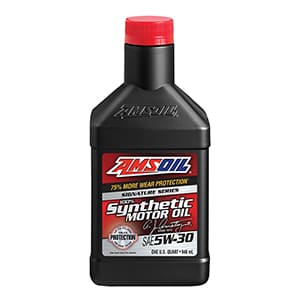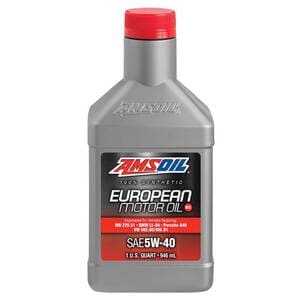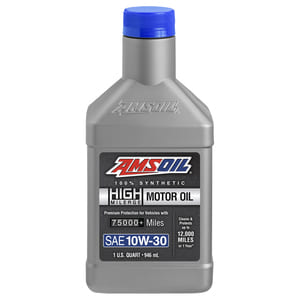In the vast and intricate world of motor oils, myths and legends have often blurred the lines between fact and fiction. Despite leaps in technological advancements and a clearer understanding of engine dynamics, certain myths about motor oil’s impact on vehicle performance and lifespan stubbornly persist. With a special focus on synthetic oils, we’re here to sift through these misconceptions, shedding light on the real effects they have on engine seals, the truth about mixing oils, and how often you should really be changing your oil. This piece aims to debunk common motor oil myths, especially concerning the fear that synthetic oil can cause leaks.

Understanding Synthetic Oil and Engine Seals
Synthetic Oil’s Effect on Engine Seals
The debate around synthetic oil’s effect on engine seals has been a hot topic among car enthusiasts and mechanics alike. A pervasive myth suggests that switching to synthetic oil in older engines can exacerbate or reveal leaks. However, this isn’t inherently a problem with the oil itself but rather an indication of pre-existing wear and tear on the seals. High-quality synthetic oils, such as AMSOIL, are designed not only to protect your engine but also to keep seals flexible and less prone to cracking or shrinking. They offer enhanced lubrication, reducing the risk of leaks by maintaining the integrity of engine seals.

Quality Synthetic Oils like AMSOIL
Diving deeper, quality synthetic oils like AMSOIL play a crucial role in dispelling the myth that synthetic oil harms engine seals. Contrary to popular belief, these oils contain special conditioners that help maintain the elasticity of engine seals, preventing leaks rather than causing them. Moreover, their superior formulation ensures that they provide consistent protection and performance, regardless of the engine’s age or condition.
Switching Between Conventional and Synthetic Oils
Safety of Switching Oils

Worried about the switch between conventional and synthetic oils harming your engine? You can breathe easy. It’s perfectly safe to switch between oil types without risking engine damage. In fact, the performance benefits of synthetic oils, such as enhanced engine protection and increased fuel efficiency, may make you think twice about going back to conventional oil.
Performance Benefits of Synthetic Oils
When it comes to performance, synthetic oils are the clear frontrunners. They’re engineered to withstand extreme temperatures and conditions, providing superior protection against wear and tear. This means better engine performance, improved fuel economy, and, ultimately, a longer engine life.
The Myth of Mixing Oils
Mixing Synthetic and Conventional Oils
Let’s tackle another common concern: is mixing synthetic and conventional oils harmful to your engine? The short answer is no. While it’s not recommended due to the dilution of the performance benefits of synthetic oils, mixing them won’t cause engine damage. However, to fully leverage the advantages of synthetic oil, sticking to one type is advisable.
Impact on Oil Performance
Mixing oils can affect the overall performance of the oil, compromising some benefits exclusive to synthetic formulations, such as improved fuel efficiency and extended oil life. Therefore, while it’s safe, mixing should be more of an exception rather than the rule.

Oil Change Frequency and Synthetic Oils
Traditional vs. Modern Oil Change Intervals
Gone are the days when a 3,000-mile oil change was a universal standard. With advancements in engine designs and oil technology, particularly with top-tier synthetic oils like AMSOIL Signature Series, some vehicles can now travel up to 25,000 miles before needing an oil change. This shift not only saves time and money but also aligns with a more environmentally friendly approach to vehicle maintenance.
Extended Mileage with Top-Tier Synthetic Oils
High-quality synthetic oils have revolutionized the way we think about oil change frequency. These oils are designed to last longer, reducing the need for frequent changes and thus lowering maintenance costs and environmental impact. Their ability to perform consistently over extended periods is a testament to the technological advancements in synthetic oil formulations.
Decoding Oil Color Changes

Natural Darkening Process
A darkening in oil color is often misinterpreted as a sign that the oil is dirty or has lost its effectiveness. However, this is a natural process resulting from the oil doing its job—capturing and holding onto contaminants and by-products of combustion within the engine. It’s an indication that the oil is effectively keeping your engine clean.
Importance of Recommended Oil-Change Intervals
Despite the natural darkening process, adhering to the recommended oil-change intervals remains crucial. These intervals are carefully calculated based on various factors, including the type of oil and the manufacturer’s guidelines. For an accurate assessment, used oil analysis can help determine the optimal time for an oil change, ensuring your engine remains in top condition.

Conclusion
For car enthusiasts, debunking myths and understanding the real benefits and capabilities of synthetic oils is not just a matter of curiosity but a necessity for informed vehicle maintenance. As we’ve unveiled, the fear that “can synthetic oil cause leaks” is largely unfounded, and the benefits of switching to, mixing, or extending the use of synthetic oils far outweigh any misconceived drawbacks. Armed with knowledge and dispelling myths, we can make better decisions for the longevity and performance of our beloved vehicles.

![Featured image for "Switching to Synthetic Oil: Benefits and Misconceptions About Leaks [Explained]" blog post. White Jeep.](https://bestengineoilintheworld.com/wp-content/uploads/2024/08/white-jeep.jpg)